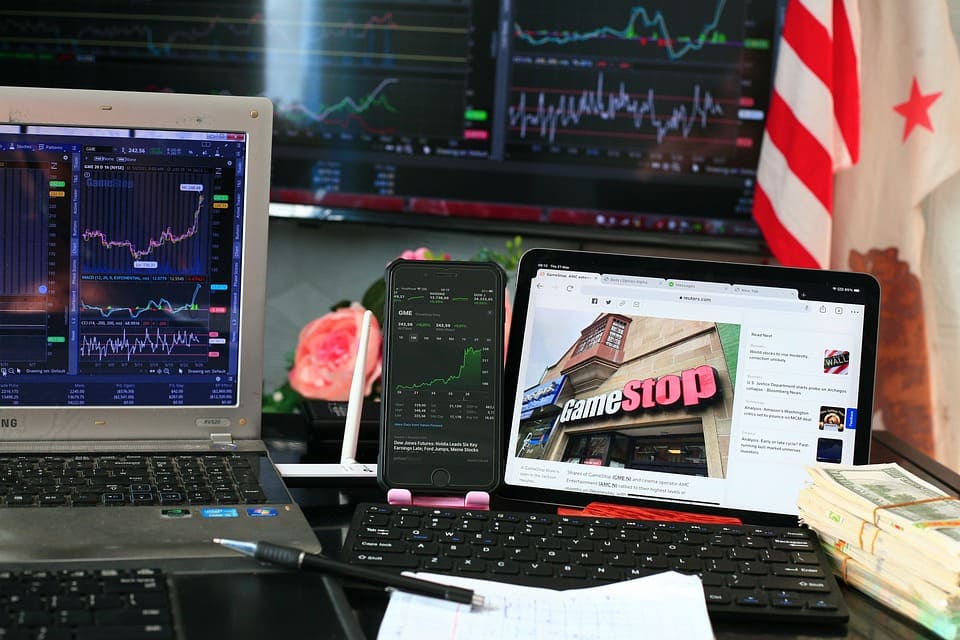The Volatility Paradox: Why Market Uncertainty Can Be a Golden Opportunity
In the world of finance, nothing is more anxiety-inducing than market volatility. The sudden, unpredictable swings in stock prices can leave even the most seasoned investors feeling like they’re walking through a minefield. But despite the fear and uncertainty that come with market turmoil, there is a paradoxical truth: market volatility can actually be a golden opportunity for shrewd investors.
In this article, we’ll delve into the mysteries of market volatility, exploring why uncertainty can be both a curse and a blessing in disguise. We’ll also discuss the importance of risk management, and provide guidance on how investors can harness the power of market volatility to boost their returns.
What is Market Volatility?
To understand the paradox of market volatility, it’s essential to have a grasp on what it actually is. Simply put, market volatility refers to the degree to which the market price of an asset, such as a stock or currency, fluctuates. This fluctuation can be influenced by a variety of factors, including economic events, political shifts, and global events.
One of the key characteristics of market volatility is that it can occur suddenly and unexpectedly. A crisis in a specific industry or geographic region can cause a ripple effect, sending markets into a tailspin. At the same time, a favorable economic report can send stocks soaring. This unpredictability is what makes market volatility so challenging – and so opportunities-rich.
Why Market Volatility Can Be a Curse
For many investors, market volatility is a four-letter word. The sudden ups and downs of the market can be terrifying, causing even the most disciplined investors to panic. When markets decline, investors often rush to the exits, only to watch their investments plummet even further. In extreme cases, this can lead to a mass exodus, causing a fire sale of assets and exacerbating the very instability that investors sought to avoid.
Moreover, market volatility can make it difficult to make informed decisions. When the market is rapidly changing, investors may struggle to separate fact from fiction, or to identify what’s driving the market’s fluctuations. This lack of clarity can lead to uncertainty, and with uncertainty comes a heightened sense of risk.
Why Market Volatility Can Be a Golden Opportunity
Despite the challenges posed by market volatility, there are a number of compelling reasons why savvy investors should seize the day:
- Mean Reversion: One of the most profound principles of financial markets is that of mean reversion. Essentially, this theory holds that the market will tend to revert back to its average or mean behavior over time, regardless of current conditions. As such, market volatility can be seen as a buying opportunity – a chance to snap up assets at discounted prices, knowing that they will likely rebound in the future.
- Mispricing: Volatility can lead to mispricing, where investors overreact to market fluctuations. This can result in assets trading at prices that are significantly above or below their intrinsic value. Shrewd investors can profit from these distortions by purchasing undervalued assets and holding them until they return to their true value.
- Risk Management: Market volatility also presents a perfect opportunity for risk management. Investors can use instruments such as stop-loss orders and hedging to mitigate their exposure to market fluctuations. By acknowledging and managing their risk, investors can actually create opportunities for greater returns.
- Emerging Trends: Volatility can also create the perfect storm for emerging trends and new investment themes. As the market fluctuates, investors can identify opportunities in areas that have been overlooked or undervalued. This is particularly true during times of global uncertainty, where investors may become more risk-averse and look for safe haven assets.
Risk Management 101
Managing risk is crucial for investors in today’s unpredictable market. Whether you’re a seasoned pro or just starting out, here are a few basic strategies to consider:
- Diversification: Spread your investments across a range of asset classes, sectors, and geographic regions to minimize exposure to any one area.
- Stop-Loss Orders: Set a maximum loss threshold and use stop-loss orders to limit your potential losses.
- Hedging: Consider hedging strategies, such as buying put options or short-selling, to reduce your exposure to market fluctuations.
- Position Sizing: Manage the size of your positions to reduce your overall exposure to market fluctuations.
Conclusion
Market volatility can be both a curse and a blessing, depending on one’s perspective and approach. By understanding the complexities of market fluctuation, and by adopting smart risk management strategies, investors can actually thrive in times of uncertainty. By embracing the unpredictability of the market, we can uncover golden opportunities that others may overlook – and create wealth in the process.
Frequently Asked Questions
Q: What are the most important factors that affect market volatility?
A: Market volatility can be influenced by a variety of factors, including economic events, political shifts, global events, and investor sentiment.
Q: How do I manage my risk in volatile markets?
A: Manage your risk by diversifying your portfolio, setting stop-loss orders, hedging, and managing position sizing.
Q: Can I use market volatility to my advantage?
A: Yes! Volatility can present opportunities for shrewd investors to buy undervalued assets, identify emerging trends, and profit from market mispricing.
Q: What is mean reversion in finance?
A: Mean reversion refers to the theory that the market will tend to revert back to its average or mean behavior over time, regardless of current conditions.
Q: How can I stay calm during times of market volatility?
A: Stay calm by having a long-term perspective, diversifying your portfolio, and adopting smart risk management strategies.

Leave a Reply